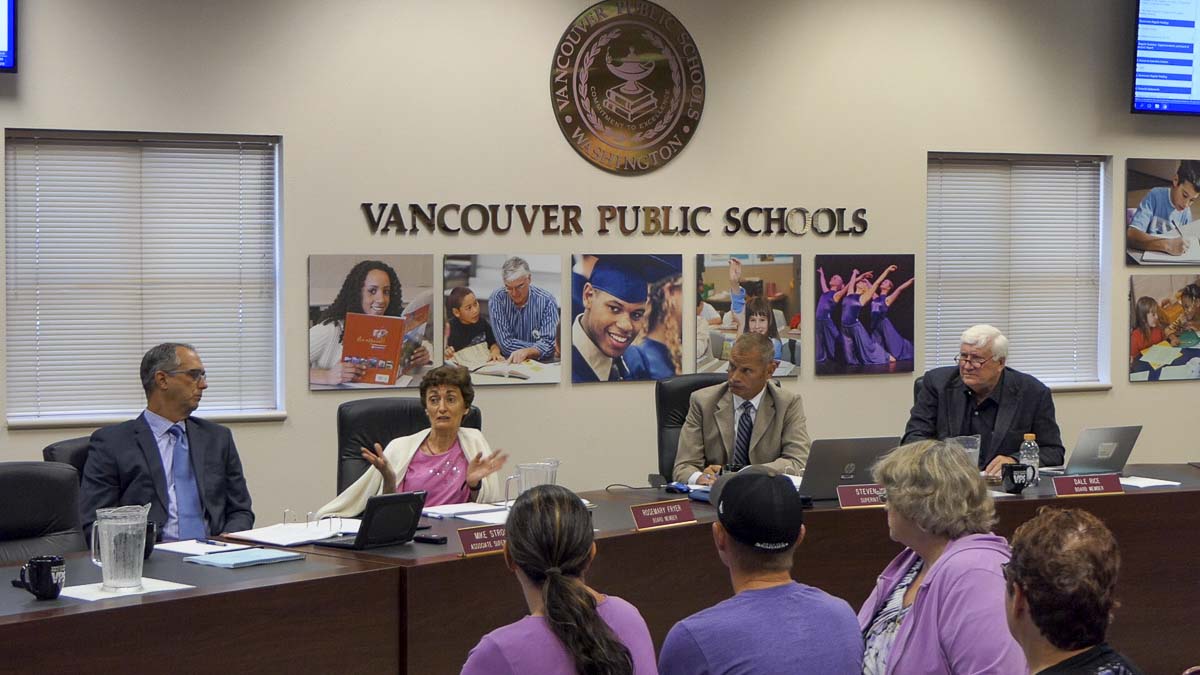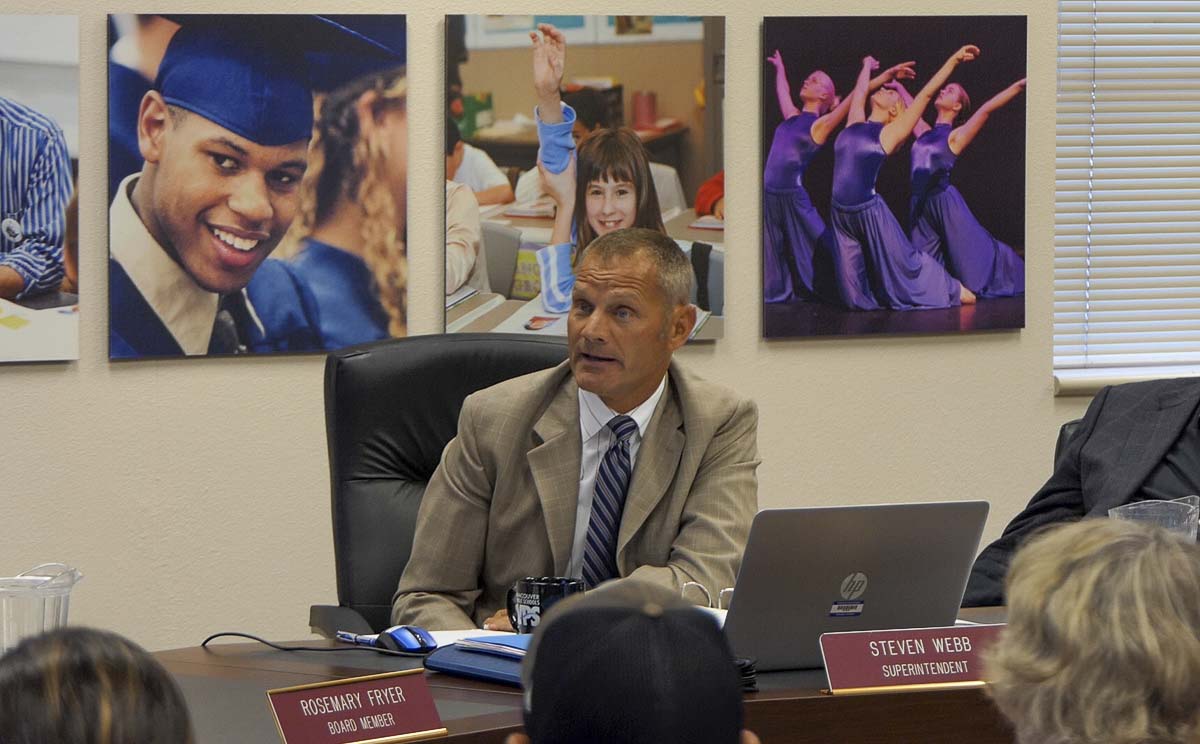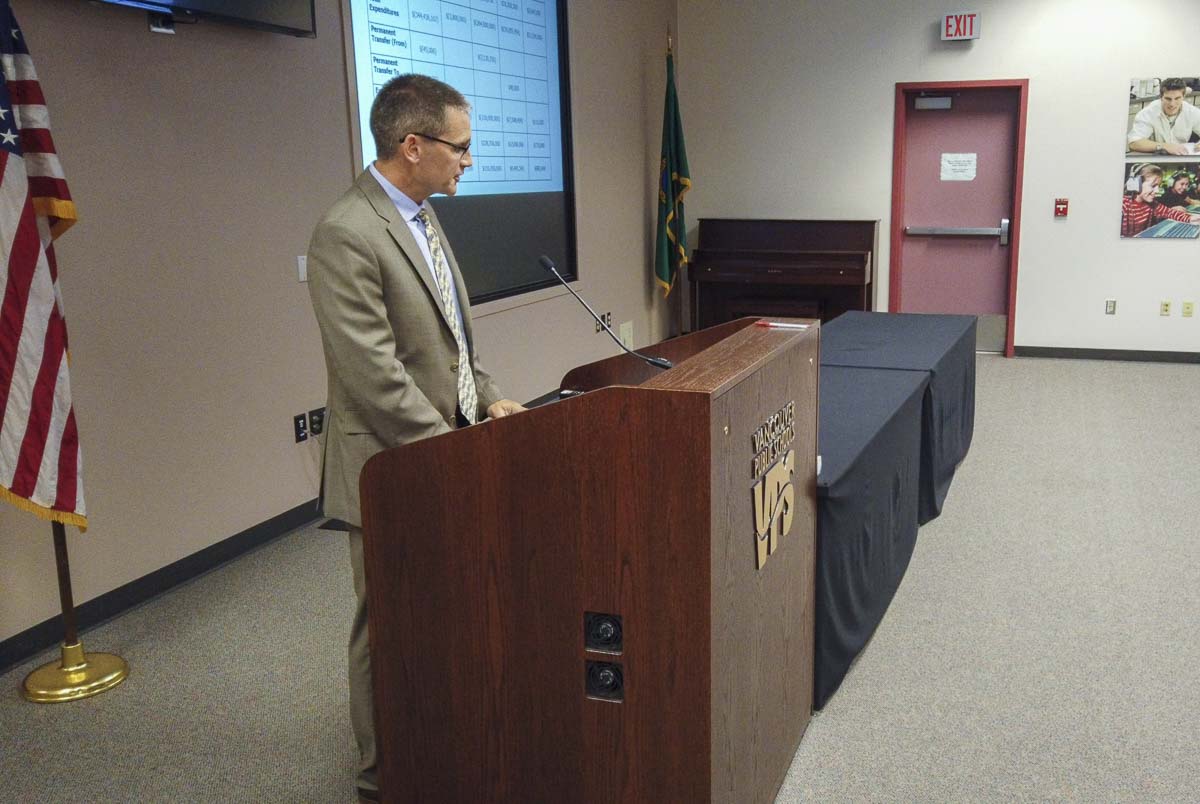The district says one-time funding used to balance this year’s budget likely won’t be available in 2020
VANCOUVER — Using a mix of one-time funding and budget cuts, the Board of Directors for Vancouver Public Schools approved a $661 million budget this week, but Superintendent Steve Webb warned this is a temporary solution in what he has repeatedly dubbed the “McCleary mess” created by the state legislature.

The district received $6.5 million in one-time levy equalization funding sought by Senator Annette Cleveland (D-Vancouver), along with $3.8 million from the district’s fund balance.
“This approach allows Vancouver Public Schools to preserve all of the school-based direct service positions originally identified last Spring as possible reductions to consider,” said Webb, “and I want to emphasize only for the 2019-2020 school year.”
Despite the $10.3 million in one-time funding, the district still had to cut an additional $4.5 million to close a budget shortfall. That was accomplished through the elimination of 10 centrally budgeted Teachers on Special Assignment (TOSA) for a savings of $1.2 million. Central office and support services were reduced five percent, and central administration positions were reduced 15 percent for a savings of $2 million. The rest came through a 50 percent cutback in professional development travel expenses.
“Without a sustainable revenue source moving forward we’ll be forced to address a $10.3 million budget shortfall in the next budget year,” warned Webb. “And we will have fewer options to consider.”
One option could be to submit a new supplemental levy to voters, who approved a renewal of the previous levy earlier this year, though at the cap of $1.50 per $1,000 of assessed value the legislature set in 2018. Earlier this year, lawmakers bumped that local cap up to $2.50 per $1,000, but districts like Vancouver and Evergreen would need to get approval from voters to take advantage of that higher rate. Webb said that will be a conversation moving into the Fall. The board is anticipated to ask for a supplemental levy of 51 cents per thousand, bringing the total maintenance and operations levy to $2.01 per thousand of assessed value. The board is expected to decide on a supplemental levy option by November.
Brett Blechschmidt, the district’s chief fiscal officer noted that, even with a building bond, maintenance and operations levy, and a technology levy, the local tax rate has declined by $1.65 per thousand in the past three years.
“I’d be remiss if I didn’t mention that the state property tax has gone up and consumed a portion of that saving,” Blechschmidt said. “Net, our taxpayers are ahead, but some of that $1.65 that we’re able to collect locally is being diverted to the state.”

The state now also requires school districts to provide a balanced four-year budget projection, and Blechschmidt said they’re only allowed to make projections with currently approved levy funding.
“And so the only way we can accomplish a break-even budget in those outgoing years, or close to a break-even budget, is we have to restrict expenditure growth,” said Blechschmidt, “which we all know means reductions in programs and services.”
Another factor playing into budget deficits is student population has declined. The 2019-2020 budget assumes a loss of an additional 458 students, resulting in a reduction in state funding of $2.3 million.
Blechschmidt says long-term demographer studies anticipate that trend could reverse in the next 2-3 years, but their four-year budget assumes student population growth will continue to decline or remain stagnate.
The district is also concerned that deficits will continue to grow as the state more strictly enforces class size limitations and special needs education. Healthcare costs have also increased because teachers can no longer take advantage of discounts when fellow employees decline coverage. That funding now goes back to the state for reallocation.
Blechschmidt noted the Federal government requires the district to spend $46.5 million for special education, but only provides $4 million in funding.
“Our biggest complaint isn’t that maybe the mandates are too rigid, but the funding should match the mandates,” said Blechschmidt.
“I’m not aware of a single district in the state that is not subsidizing special ed expenditures out of local levy resources,” added Webb. “Over the past four years, special ed services have increased by 50 percent, yet net revenue has increased by 40 percent. The gap continues to grow.”

Webb said the state, and the district, have a moral obligation to make sure children with special needs can get an education, but there needs to be more “outrage at the failure of the legislature to fulfill their constitutional duty as it relates to special education services.”
A total of $334.5 million of the district’s budget goes to staffing and instructional programs. Another $271 million will be spent on bond-funded capital projects.
“Eighty-five cents of every dollar is a human cost in the system. That cuts the margin and the latitude that we have, and so the state’s gotta step up, gotta step up and handle their paramount duty,” said board member Dale Rice, using air quotes around the final two words.
District reaches tentative deal with SEIU members
Tuesday’s meeting was packed with dozens of purple-clad Service Employees International Union (SEIU) Local 925 members, representing over 500 bus drivers, custodians, food nutrition workers, and other district staff. On Thursday morning, the district and SEIU leadership announced a tentative deal had been reached, after an all-night bargaining session that ended at 6 a.m.
“After the bargaining team gets some much earned rest we’ll share more detail,” the union said in a post on Facebook.
“These professionals are critical to the operation of our schools,” Webb said in a news release. “They drive our buses; cook and serve student meals; maintain our grounds, schools and equipment; and keep our students and staff members safe. They are integral members of our district and valued employees.”
The district also did not release details of the agreement on Thursday.
SEIU members had been pushing for assurances that their jobs would not be outsourced to third-party contractors, similar to Evergreen School District.




